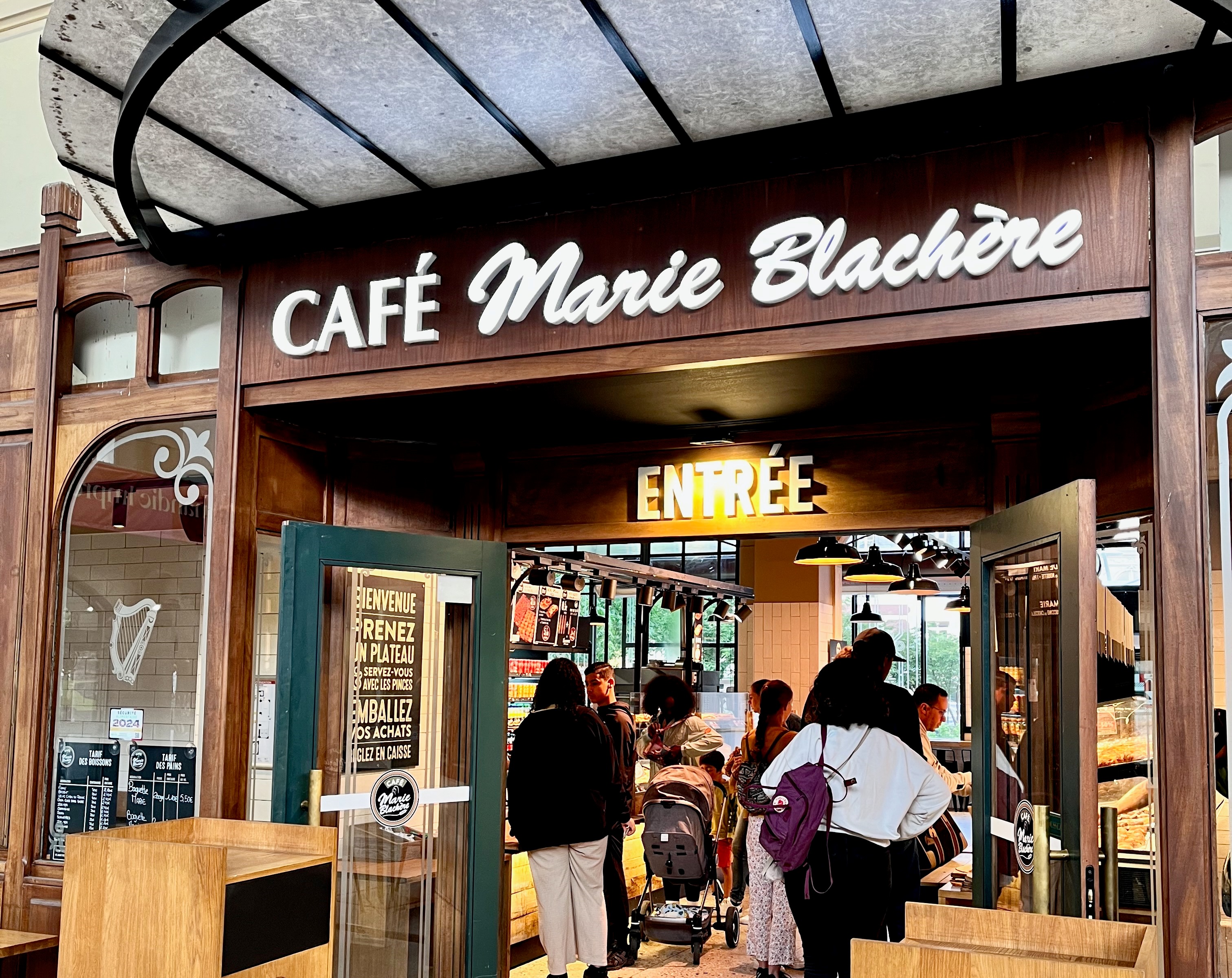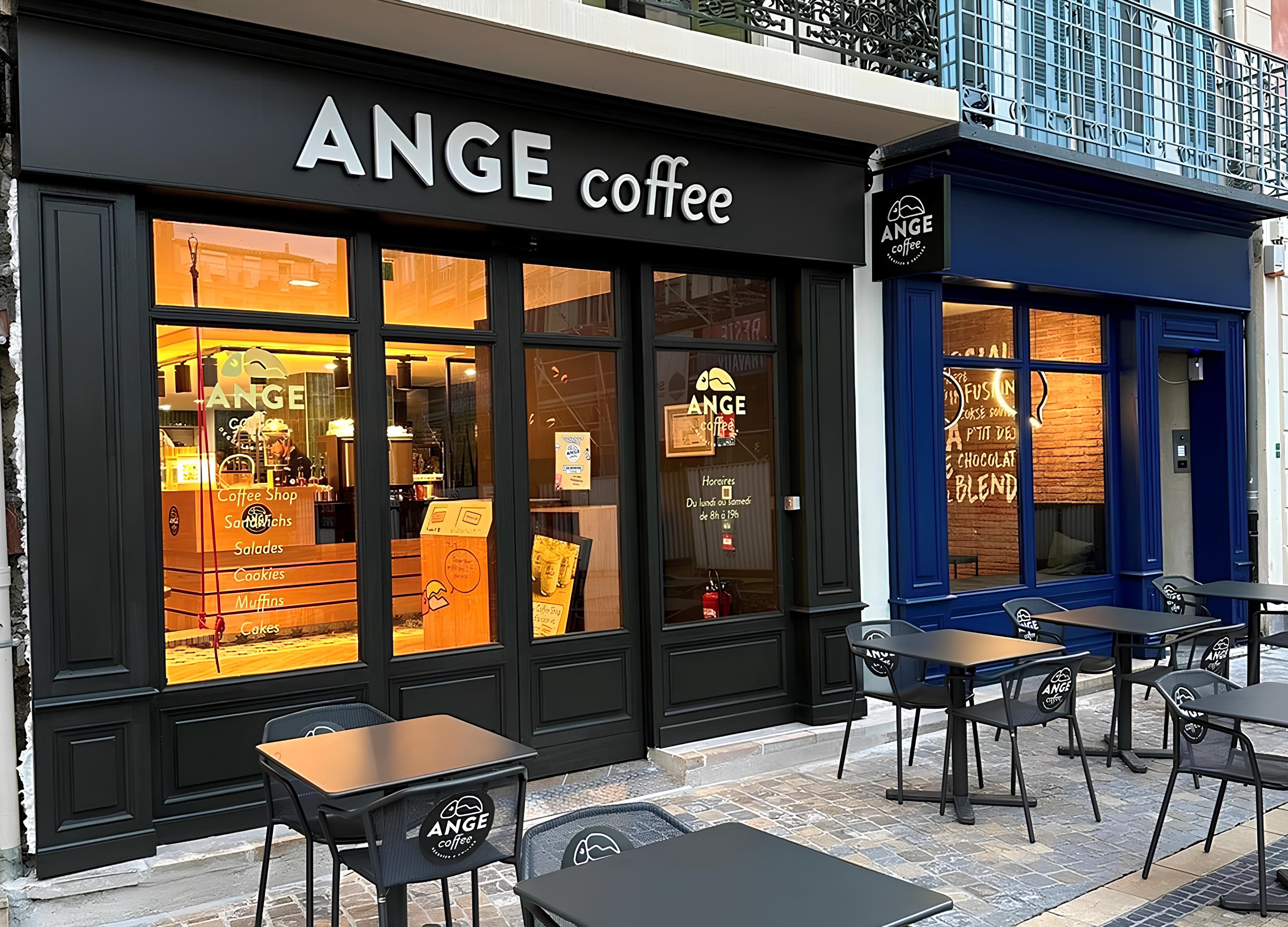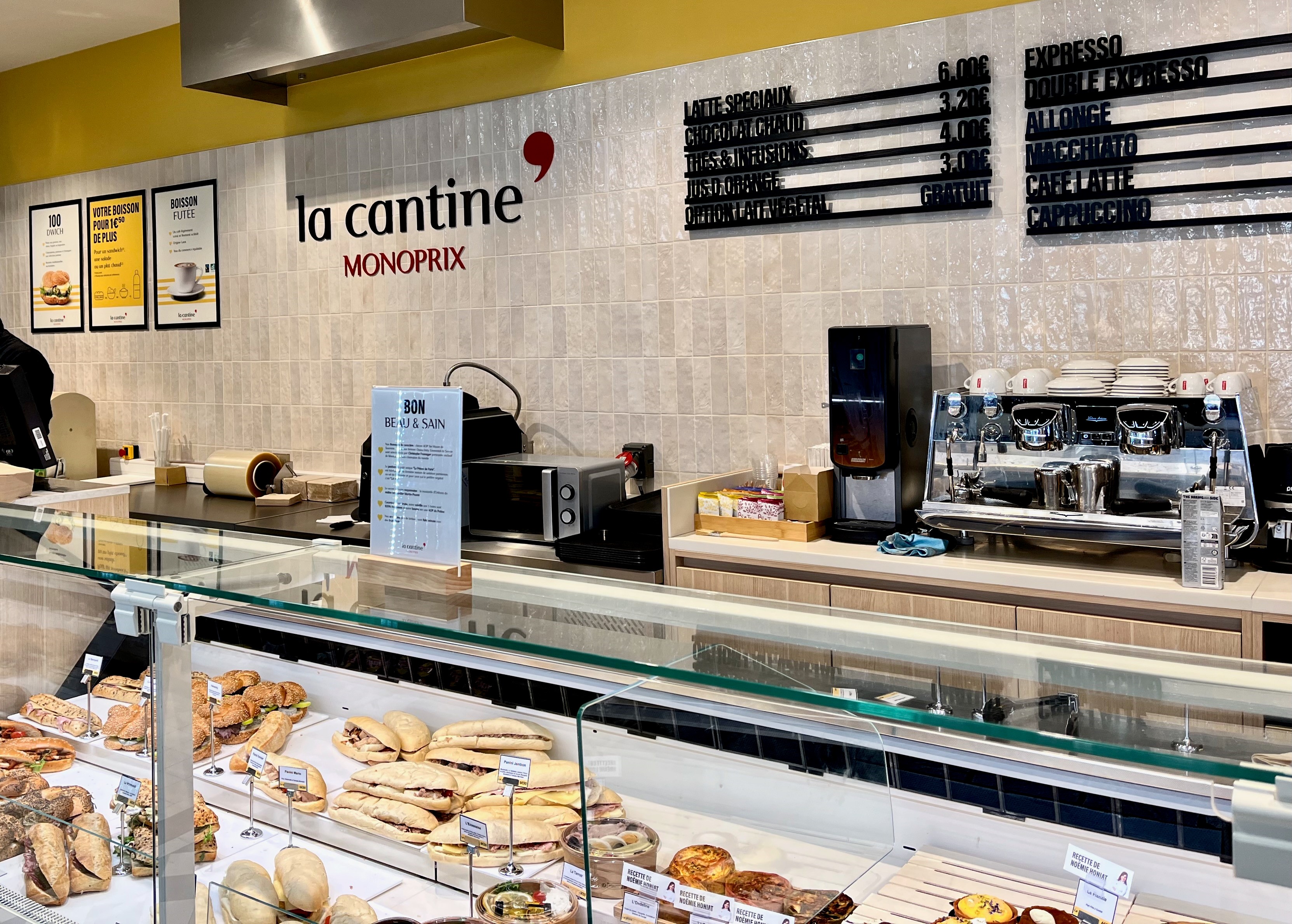By Rémi Héluin
International chains as well as independent city-center bakers now face new competitors. Once limited to the familiar “roundabouts,” the new-generation networks that emerged about twenty years ago now aim to multiply their formats and tap into consumers’ love for the “coffee shop” atmosphere. Ange, Marie Blachère, Feuillette, Paul, Maison Bécam, and even Monoprix — these are just some of the names to watch for coffee breaks… and much more.
"I want to de-Americanize the coffee shop," smiles Jean-François Feuillette. With this simple statement, the baker-pâtissier with 83 outlets directly targets the sector’s giants, whose branding clearly shows their origins. The French-style coffee shop is the new playground for the rising stars of bakery. With his Café Feuillette concept, launched in Tours (Indre-et-Loire) in August 2024 and more recently in Limoges (Haute-Vienne), the brand applies the same winning formula — but in a miniaturized format with a streamlined range, leaving bread aside. Viennoiseries, pastries, and savory items (sandwiches, salads, soups…) are offered across 240 m², compared to nearly 600 m² for their suburban locations. Hot drinks, which represent nearly 30% of the business, play a key role. Sweet and savory beverages, hot or cold, complement the traditional coffee offering.
An efficient, profitable, and easier-to-deploy format

Feuillette is not the first brand to enter this highly strategic space. Not only does this format place the business closer to consumers, mechanically increasing brand visibility, but it also offers franchise partners the chance to open outlets with a lower investment. The Blachère Group noticed this as early as 2020, when it began experimenting with its “Café Marie Blachère.” City centers, train stations, airports, highway service areas, and gas stations: on spaces of 100 to 200 m², this little sister brand emphasizes self-service products and aims to capture consumers wherever they go.
The same logic applies to the Holder Group, which adapted its flagship brand Paul into the Paul Café format, first expanding internationally before accelerating in France.
Having surpassed the 50-unit mark last year, Paul Café represents the renewal of an iconic French fast-food brand — all while continuing to champion its emblematic products, like the croissant, naturally paired with hot drinks.
Ange, Maison Bécam, Monoprix… heating up the café market

For customers, this trend offers a solid option for lunch breaks. It benefits from the bakery’s accessible price image while providing a modern setting, with varied, seasonally evolving recipes… competing not only with traditional snacking players, like burger specialists, but also with independent artisans, the long-standing players in downtown casual dining.
Tomorrow, they will face new entrants, some already well-known in the bakery chain sector. Ange Coffee, connected to the well-known brand with its halo logo, aims to spread its pelican wings into new territories, after landing in Narbonne (Aude) in summer 2023. “This first location allowed us to adapt the concept before rolling it out soon in Salon-de-Provence (Bouches-du-Rhône) and then in western France,” explains Mélanie Kervoern, marketing and communications director at Ange. At Maison Bécam (28 bakeries), founders Cécile and Nicolas recently unveiled their “Bécam Café” project, though no specific openings have been announced yet.

All this may only be the beginning of the promising “coffee bakery” market at the heart of France. Major retail chains are showing keen interest in this activity, which could soon take place right inside their sales spaces. In April, Monoprix began rolling out its “Cantine” concept in its stores in Colombes, Neuilly-sur-Seine (Hauts-de-Seine), and Paris-Beaugrenelle. Pastries by Noëmie Honiat, sandwiches filled with Prince de Paris ham and cheeses selected by Christophe Fromager, specialty coffees prepared by a barista… all these elements embrace the codes of the famous French-style coffee shop. Philippe Palazzi, CEO of the Casino Group (which owns Monoprix), aims to bring this concept to 10 more stores in Île-de-France and across the country by the end of the year — with an ambitious goal: eventually generating half of Monoprix’s business through foodservice. After conquering the roundabouts, competition is far from over in the battle for city centers.